Sorted by date Results 601 - 625 of 872
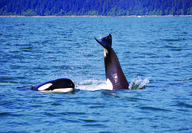
Alaskan salmon producers are not buying the presumption that growing numbers of pinks are eating too much food in the ocean, causing sockeye salmon to grow slower and smaller. That’s the claim of a new study by Seattle and British Columbia researchers, who say the race for food ultimately affects sockeye abundance and survival. “Our data sets extend up to 55 years each. In terms of looking at productivity or survival of salmon, they’ve included 36 sockeye populations,” said Greg Ruggerone, a researcher at Natural Resources Consultants in Seat...
The Alaska Department of Fish and Game announces the 2015 sport fishing regulations for king salmon in SE Alaska and Yakutat effective 12:01 a.m. Friday, May 1, 2015 – 11:59 p.m. Sunday, May 1, 2016: Alaska Resident: the resident bag and possession limit is three king salmon, 28 inches or greater in length. Nonresident: The nonresident bag and possession limit is one king salmon, 28 inches or greater in length, except during May and June, during which the bag and possession limit is two king salmon, 28 inches or greater in length; the nonreside...
Sport fishing regulations for king salmon will be liberalized in marine waters of District 8 near Petersburg and Wrangell according to the Alaska Department of Fish and Game. The following sport fishing regulations for the marine waters of District 8 will be in effect as of 12:01 A.M. Friday, May 1, 2015 - 11:59 P.M. Wednesday, July 15, 2015: Sport fishing for king salmon may be conducted with the use of 2 rods per angler with no more than six lines fished from a vessel. Resident anglers will have a bag limit of three king salmon 28 inches or...
Each year more than one third of all the salmon caught in Alaska begin their lives in a hatchery. There are 31 hatchery facilities in Alaska: 15 privately owned, 11 state owned, two federal research facilities, one tribal hatchery at Metlakatla, and 2 state owned sport fish hatcheries. Alaska’s hatchery program is very different from fish farming, where salmon are crammed tightly into net pens until they’re ready for market. All salmon born in Alaska’s hatcheries come from wild brood stock, and are released as fingerlings to the sea. When...
Of all the global fish news sites, London-based Undercur-rent News has risen to the top when it comes to scoops on sales of Alaska seafood companies. The latest - Icicle Seafood owners Paine and Partners of San Francisco are having a tough go selling their wild salmon assets in the face of a tight market and another big wild harvest on the horizon. Icicle produces fresh, frozen and canned salmon at plants in Petersburg, Seward, Egegik/Bristol Bay, Larsen Bay/Kodiak Island; and near Dillingham. “Final bids are in and news on if Icicle will be b...
Caribou instead of corn dogs…salmon instead of Trout Treasures… seal meat in place of spaghetti – all could soon be available to more Alaskans if traction continues on a new bipartisan bill before the Alaska legislature. The bill - HB 179 - allows schools, senior centers, hospitals, child care centers and other facilities to accept and serve fish, game, plants and eggs that are donated by subsistence and sport users. Currently, well-meaning state laws intended to prevent the commercial sale of wild game make the practice illegal if a progr...
File this fish story under the “can there be too much of a good thing” category. Alaska is expecting another bumper run of salmon this year– state managers announced last Friday a projected total catch of 221 million salmon, 39 percent higher than last year. (The numbers for Chinook salmon are still being calculated,) Regional catch projections for this summer are up across the board, according to Runs and Harvest Projections for Alaska’s 2015 Salmon Fisheries and Review of the 2014 season by the AK Dept. of Fish and Game. Driving the numbers...
The Sitka Sound sac roe herring fishery closed last week after a quiet, steady week of fishing. The guideline harvest of 8,712 tons was reached by 6 p.m. on Wednesday, March 25. The fishery first opened for a few hours on March 18 at 3 p.m., after being put on a two-hour notice at 10 a.m. “It was pretty much open daily until the following Wednesday,” Alaska Department of Fish and Game biologist Dave Gordon said. The 48 permit holders voted to fish cooperatively this year with a poor sac roe herring market. Gordon said there were around 25 sei...
Volunteers are needed to help craft new safety rules that are being written for older boats – which includes the bulk of Alaska’s fishing vessels. Called the Alternate Compliance Safety Program (ACSP), it is part of the 2010 US Coast Guard Authorization Act and is aimed atvessels that will be 25 years old by 2020, are greater than 50 feet in length, and operate beyond three nautical miles. The program will include most of Alaska’s fishing fleet — a 2014 maritime study by the Juneau-based McDowell Group shows that the majority of Alaska...
Seven times is the charm for building some momentum on a measure that aims to give personal use (PU) fisheries a priority over commercial and sport users. As it stands now, the three fisheries all are on equal footing in the eyes and actions of state managers. The priority shift has been introduced during each of the last seven legislative sessions by (now) Senator Bill Stoltze (R-Chugiak), but has never made it past a first hearing – until now. “It only took Sen. Stoltze, the bill sponsor, chairing the hearing committee himself,” quipp...
This year’s Tanner crab season saw its largest harvest in 15 years while prices dropped. Preliminary estimates show the 2014-15 Tanner fishery in Registration Area A (Southeast Alaska) is 1.42 million pounds with 84 permit holders, according to Alaska Department of Fish and Game Lead Crab Biologist Joe Stratman. “This harvest exceeded last season’s harvest by 170,000 pounds, and is the largest Tanner harvest in 15 seasons,” he said. “You have to go back to the 1999-2000 season to find a larger harvest of Tanner crab in Southeast Alaska.... Full story
Print your licenses at home and go fishing. The Alaska Dept. of Fish and Game’s revamped Online Store is the go to place for all fishing (and hunting) licenses and it now offers two new features. “Fishermen, both sport and commercial, can now print their licenses at home. They can purchase it online, immediately print it and go out fishing,” said Michelle Kaelke, Financing and Licensing Supervisor for the department. “They can buy it before they go out to the fishing grounds, or if they’re traveling from Seattle or wherever, they can have ever...
The Sitka Sound sac roe herring fishery opened at 3:30 p.m. Wednesday under a cooperative model. Dave Gordon, area management biologist at the Alaska Department of Fish and Game, said the decision was made by permit holders to eliminate competition and lower costs to “make it worthwhile to go after the product” as the market is poor. It wasn’t a popular decision among tenders, however. “There’s a lot less boats here,” said Tanner Mackiewicz, president of the Alaska Independent Tendermen’s Association. “A lot of people without jobs.” He said the...
A nearly $12 million cut in state funds is on tap for the Alaska Dept. of Fish and Game if state policy makers have their way. That was one early outcome of legislative House finance subcommittee meetings last week, as they wrapped up the first step in a budget process that will see cuts in agencies and programs almost across the board. According to Juneau Resources Weekly, the ADF&G budget reductions cut across all divisions with sport fishing facing the most personnel losses at 12 seasonal jobs. The Division of Habitat could lose $400,000;...
Right after the yearly halibut catch limits are announced each January, brokers usually are busy with buying and selling and transferring shares of the catch. But it’s been slow going so far, even with slight harvest increases in nearly all Alaska fishing areas for the first time in nearly a decade. The buyers are there – it’s the sellers that are scarce. “There’s less of a rush this year, but there are less quota shares available,” said Olivia Olsen at Alaskan Quota and Permits at Petersburg. “We’ve had some good sales in Southeast (2C),...
Last year was one of the busiest years ever for Alaska brokers who help fishermen buy, sell and trade fishing permits and quota shares. “I was really happy to see such a good mix of permits we were selling – it wasn’t just one thing,” said Olivia Olsen of Alaskan Quota and Permits in Petersburg. “We had a lot of Dungeness crab permits, charter halibut permits, salmon and shrimp permits, sea cucumbers, and then whatever IFQs we could find.” Salmon permit sales peak from March through May, and early indicators point to lower salmon prices this...
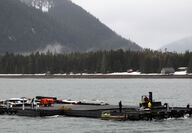
Lovers choose lobster as the top Valentine's Day dish to share with that special someone. Crab legs and shrimp also get the nod as 'romantic meals' on Feb. 14 - one of the busiest dining out days for U.S. restaurants. In a national survey by Harris Interactive, chefs called lobster an "exotic delicacy that results in an intimate moment because it is hand-held and shareable." In fact, respondents called all shellfish 'a catalyst for connection like no other food.' The links between seafood and...
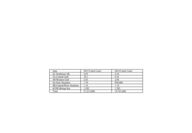
Freezer displays at Walmart superstores in Alaska and Washington now include a new lineup of 14 Alaska seafood items. The world's largest grocer announced the expanded commitment to Alaska seafood last week. "We are so proud to bring these to our customers, and we also know how important it is to local fishermen and folks across the state," said John Forrest Ales, Director of Corporate Communications for Walmart. Company stores already carry Alaska halibut and sockeye salmon. Added to the mix...
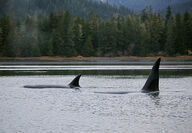
The need for a clear “fish first” policy in Alaska tops the list of priorities compiled by the Fisheries Transition Team for Governor Walker. The group also stated that “fish and fishermen in Alaska are viewed as barriers to development,” and that there is “irreplaceable optimism” that fish can coexist with development at any scale. Fisheries was just one of the topics that 250 Alaskans brainstormed about in 17 teams that newly elected Walker convened in late November. Their task was to identify the top five priorities in diverse categories,...
Alaska seafood marketers are ramping up promotions and bankrolling a global $1 million media blitz to counteract a tough sockeye salmon market. Sockeyes are by far the most valuable salmon catch, often worth two-thirds of the value of Alaska’s entire salmon fishery, but last summer’s unexpected surge of reds left lots of inventory in freezers, and record US imports of competing farmed salmon from Chile and Norway combined with the prospect of another big run at Bristol Bay make for a sockeye sales squeeze. Alaska’s approach will be patte...
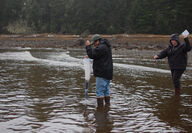
A new phytoplankton monitoring program being done by Petersburg Indian Association (PIA) will help alert recreational and subsistence shellfishers to harmful algal blooms in the area more quickly. "There are types of phytoplankton that, in the spring or summertime or when the water starts to warm up, they start to come out of hibernation. And in some cases so much so that they form a bloom," said PIA Tribal Resource Director Marco Banda who heads the monitoring program and administers the...
Alaska seafood marketers are facing some strong headwinds heading into 2015, notably, for sockeye salmon and crab. Snow crab is Alaska’s largest crab fishery, underway now in the Bering Sea. The fleet has a slightly increased 61 million pound catch quota; boats also are tapping on a hefty bairdi Tanner crab catch, the larger cousin of snow crab. A 25% increase in snow crab, the unexpected 15 million pound Tanner fishery, a weak Japanese yen, plus several million pounds of Russian snow crab from a new fishery in the Barents Sea, (not to mention...
The Alaska Department of Transportation and Public Facilities (ADOT&PF) announced travel fares on the Alaska Marine Highway System will increase 4.5 percent starting May 1. The new fare structure went into effect with the new year, but will not affect reservations already made in advance. Some fares will not be affected by the new structure. The ADOT&PF release said fares that are “disproportionately higher” than the majority of AMHS fares will remain unchanged. The department reports the fare increase will help cover operating costs and mee...